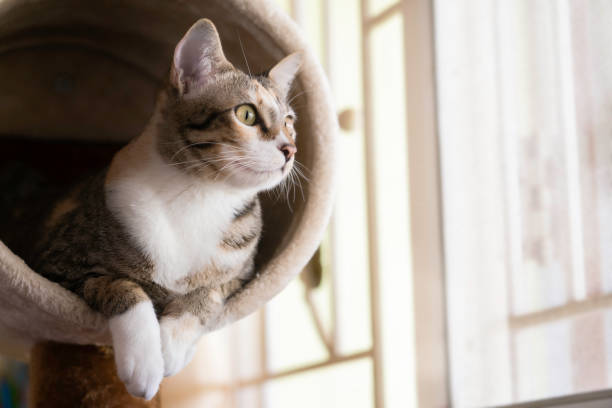
Feline owners are no complete strangers to the daily task of scooping out their furry good friend's litter box. It's a routine job that's often neglected, yet crucial for preserving a tidy and healthy environment for both cats and their human buddies. Nevertheless, what numerous family pet owners may not understand is that there are covert health threats associated with the litter box that can present threats to both humans and felines alike. From breathing issues to parasitic infections, the litter box can harbor a variety of threats that require cautious attention and management.
Among the most typical health risks connected with the litter box is breathing issues. Cat litter, particularly clay-based ranges, can consist of fine dust particles that become air-borne when interrupted during scooping or when cats dig in the litter. These dust particles can be inhaled by both felines and human beings, leading to respiratory irritation and intensifying conditions such as asthma or allergic reactions. In some cases, prolonged exposure to litter dust can even cause more serious breathing issues in both felines and their owners.
To minimize respiratory dangers, it's necessary to pick low-dust or dust-free litter options and to scoop the litter box in a well-ventilated area. Wearing a dust mask while cleaning the litter box can also assist minimize direct exposure to air-borne particles, especially for people with breathing sensitivities.
Another significant health risk associated with the litter box is the potential for parasitic infections, particularly from Toxoplasma gondii, a common parasite found in cat feces. While many healthy individuals may not experience symptoms if infected, pregnant ladies and individuals with weakened immune systems are at higher risk of developing severe complications, including birth defects and neurological disorders.
To decrease cat litter robot the threat of parasitic infections, pregnant females need to prevent cleaning up the litter box completely and entrust this task to another home member. Additionally, all individuals should practice good health routines, consisting of washing hands thoroughly after handling the litter box or coming into contact with feline feces, to lower the danger of transmission.
Numerous industrial cat litters contain chemicals and ingredients that can present health dangers to both cats and humans. For instance, some fragrant litters may contain scents or vital oils that can irritate sensitive breathing systems or activate allergies. Additionally, clumping litters often consist of salt bentonite, a clay material that can broaden when consumed, resulting in gastrointestinal clogs if taken in by cats.
To decrease chemical direct exposure, select odorless or naturally-scented litters made from naturally degradable materials such as paper, wood, or plant-based options. These environment-friendly choices are not only more secure for your cat's health however likewise better for the environment.
The litter box environment supplies an ideal breeding place for germs, including possibly hazardous pathogens such as E. coli and Salmonella. These bacteria can pollute the litter box and surrounding areas, increasing the threat of infection for both cats and humans. Felines can contract bacterial infections through direct contact with contaminated litter or by consuming fecal matter throughout grooming, while people can end up being Self Cleaning Litter Boxes infected through contact with infected surfaces or improperly cleaned hands.
To reduce the threat of bacterial contamination, it's important to clean the litter box frequently using warm water and mild cleaning agent, as well as to decontaminate the surrounding area to avoid the spread of bacteria. Furthermore, practicing excellent hand hygiene, consisting of washing hands completely after handling the litter box or entering contact with feline feces, can help decrease the risk of bacterial transmission.
While the litter box might look like a mundane element of cat ownership, it's vital to acknowledge the prospective health threats associated with this relatively harmless fixture. From respiratory concerns to parasitic infections and bacterial contamination, the litter box can harbor a variety of dangers that need careful attention and cat litter robot management. By taking proactive steps to decrease exposure to these dangers, feline owners can create a much safer and much healthier environment for both their feline buddies and themselves.